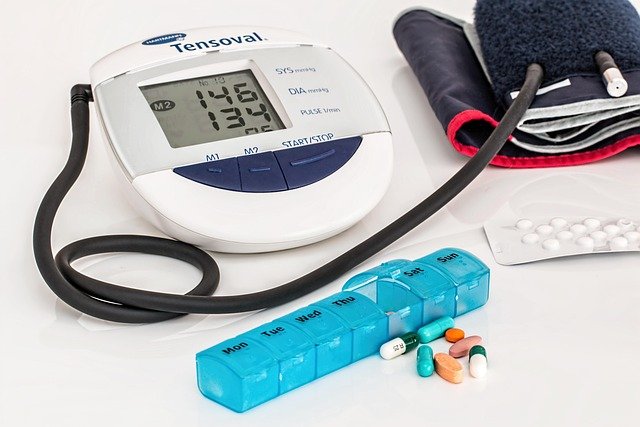Conquering Heart Disease: Exploring Modern Treatments
Heart disease continues to be a global health concern, impacting countless lives annually. As medical science evolves, so do the strategies for combating this pervasive condition. From simple lifestyle adjustments to groundbreaking medical procedures, this comprehensive guide delves into the diverse spectrum of heart disease treatments available today, offering hope and insight for those affected.

Heart disease remains a formidable adversary in the realm of public health, but thanks to ongoing medical advancements, patients now have access to a wide array of treatment options. This article aims to provide a comprehensive overview of current approaches to managing heart disease, ranging from everyday lifestyle modifications to cutting-edge medical interventions.
Embracing Heart-Healthy Habits
The foundation of heart disease management often begins with simple yet powerful lifestyle changes:
-
Nutritional overhaul: Adopting a heart-friendly diet rich in fruits, vegetables, whole grains, and lean proteins while limiting saturated fats, trans fats, and sodium intake.
-
Active living: Incorporating regular physical activity into daily routines, aiming for at least 150 minutes of moderate-intensity exercise per week as recommended by health experts.
-
Stress reduction: Implementing effective stress management techniques such as mindfulness meditation, progressive muscle relaxation, or engaging in enjoyable hobbies.
-
Tobacco cessation: For smokers, quitting is a crucial step towards improved cardiovascular health and overall well-being.
-
Weight optimization: Achieving and maintaining a healthy body weight through a balanced combination of proper nutrition and regular exercise.
These lifestyle modifications not only aid in managing existing heart conditions but also play a pivotal role in preventing further progression of cardiovascular disease.
Pharmacological Approaches to Heart Disease
Medication often forms a cornerstone of heart disease treatment. Depending on the specific condition and its severity, healthcare providers may prescribe various types of drugs:
-
Cholesterol-lowering agents: Statins and other lipid-lowering medications help reduce the risk of heart attacks and strokes by managing cholesterol levels.
-
Cardiac rhythm regulators: Beta-blockers work to slow heart rate and reduce blood pressure, easing the burden on the heart.
-
Vascular relaxants: ACE inhibitors and ARBs help dilate blood vessels, improving blood flow and reducing strain on the heart.
-
Anticoagulants and antiplatelets: These medications, including aspirin and newer anticoagulants, help prevent the formation of dangerous blood clots.
-
Fluid balance medications: Diuretics assist the body in eliminating excess fluid, reducing the workload on the heart.
It’s important to note that medication regimens are highly individualized and may evolve over time based on the patient’s response and overall health status.
Surgical Interventions for Advanced Heart Disease
In cases where lifestyle changes and medications prove insufficient, more invasive treatments may be necessary. Surgical options range from minimally invasive procedures to complex open-heart surgeries:
-
Coronary angioplasty and stenting: A procedure to open blocked arteries using a balloon catheter, often followed by the placement of a stent to maintain arterial patency.
-
Bypass surgery: Coronary artery bypass grafting (CABG) creates new routes for blood flow around blocked arteries, improving cardiac function.
-
Valve procedures: Techniques to repair or replace damaged heart valves, enhancing blood flow through the heart chambers.
-
Cardiac rhythm devices: Implantable cardioverter-defibrillators (ICDs) monitor heart rhythm and deliver electrical shocks when dangerous arrhythmias are detected.
-
Mechanical circulatory support: Left ventricular assist devices (LVADs) can be implanted to help a weakened heart pump blood more effectively.
These surgical interventions can be life-saving for many patients with advanced heart disease or those who haven’t responded adequately to other treatments.
Tailored Approach to Heart Failure Management
Heart failure, a complex cardiac condition, requires a comprehensive and nuanced treatment strategy:
-
Polypharmacy: Heart failure patients often require a carefully balanced combination of medications to manage symptoms and improve cardiac function.
-
Fluid vigilance: Strict monitoring and control of fluid intake is crucial to prevent pulmonary edema and peripheral fluid accumulation.
-
Cardiac resynchronization: Some heart failure patients benefit from specialized pacemakers that coordinate the heart’s contractions for improved efficiency.
-
Advanced therapies: In severe cases, heart transplantation or the use of ventricular assist devices may be considered as last-resort treatment options.
-
Holistic monitoring: Regular check-ups and home monitoring of symptoms and vital signs are essential for effective heart failure management.
The treatment of heart failure often necessitates a multidisciplinary approach, involving cardiologists, specialized nurses, nutritionists, and other healthcare professionals working in concert to provide comprehensive care.
Frontier of Cardiovascular Medicine
The landscape of heart disease treatment continues to evolve, with promising new therapies on the horizon:
-
Genetic interventions: Researchers are exploring ways to use gene therapy to treat various cardiac conditions at their molecular roots.
-
Regenerative medicine: The emerging field of stem cell therapy aims to regenerate damaged heart tissue, offering hope for improved cardiac function.
-
Minimally invasive innovations: Advancements in technology allow for more procedures to be performed with smaller incisions, reducing recovery time and potential complications.
-
AI-assisted diagnostics: Artificial intelligence is being harnessed to develop tools that can detect heart disease earlier and with greater accuracy.
-
Precision medicine: The ability to tailor treatments based on an individual’s genetic profile and specific risk factors is becoming increasingly feasible.
These cutting-edge innovations represent the future of heart disease treatment and may offer new hope for patients in the years to come.
In conclusion, the field of heart disease treatment has made remarkable strides, offering patients a diverse array of options from lifestyle modifications to advanced medical interventions. As research continues to push boundaries, new therapies and technologies promise to further improve outcomes for those living with heart disease. However, the cornerstone of effective treatment remains early detection, adherence to medical advice, and a steadfast commitment to heart-healthy living.
This article is intended for informational purposes only and should not be considered a substitute for professional medical advice. Always consult with a qualified healthcare provider for personalized guidance and treatment options.






